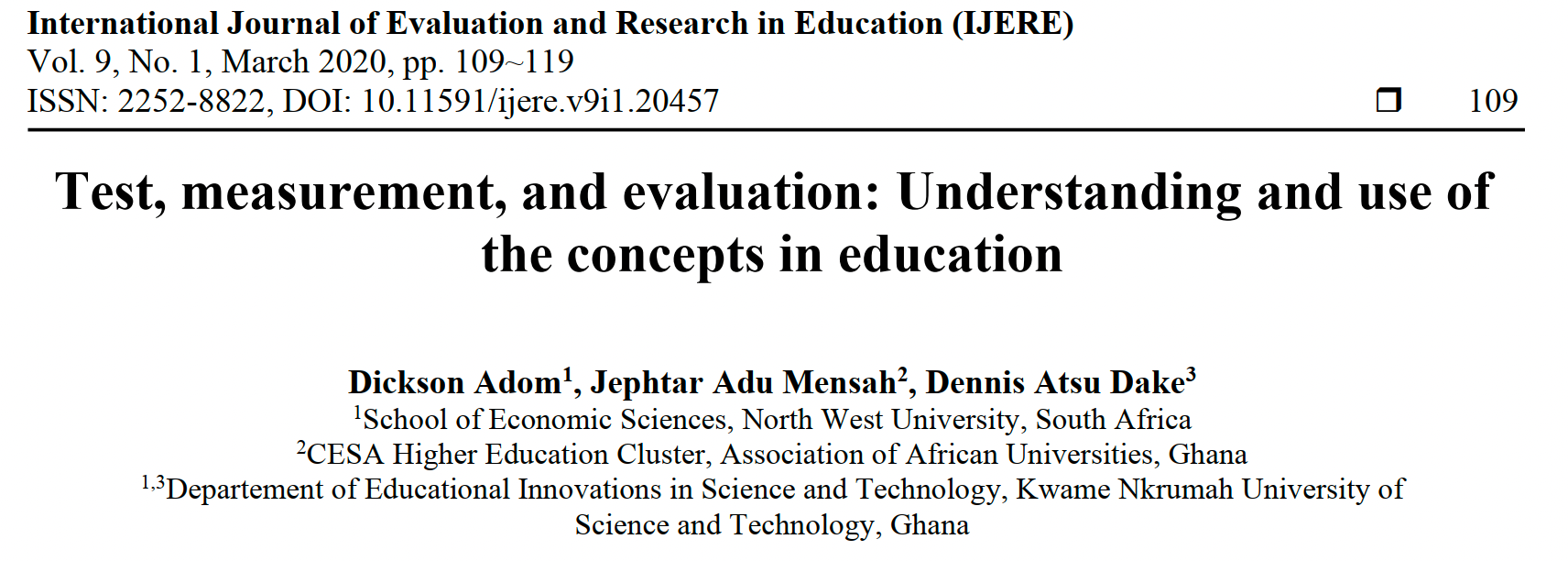The Impact of Understanding Test, Evaluation, and Measurement on Educational Practice

This portfolio post reflects on the journal article titled "Test, Measurement, and Evaluation: Understanding and Use of Concepts in Education," published in the International Journal of Evaluation and Research in Education (IJERE), Vol. 9, No. 1, March 2020. Authored by Dickson Adom, Jephtar Adu Mensah, and Dennis Atsu Dake, the article explores the critical roles that test, measurement, and evaluation play in shaping educational practices.
Lately, I’ve been reflecting on my teaching approach, especially in relation to the concepts of testing, measurement, and evaluation. These aren't just abstract ideas—they directly shape how we teach and how students learn. Tests gather data, measurements quantify it, and evaluations use both to judge learning outcomes and teaching effectiveness.
As a first-year physics teacher, I’ve found myself questioning the traditional methods we
often default to in classrooms. It's clear that if we want students to truly succeed, we need to be intentional and thoughtful about how we assess them.
Time and time again I am convinced that the traditional reliance on tests feels increasingly inadequate. While tests can provide immediate feedback and are often considered the best way to measure student performance, they frequently fail to capture a student's full capabilities. My classroom experiences have shown that offering various assessment methods—like projects and experiments—allows students to demonstrate their knowledge in different ways. For instance, giving students options, such as solving problems using equations or conducting laboratory experiments during a lesson on Newton's Laws, helped reveal different strengths that a standard test would miss.
This realization has been both eye-opening and frustrating. When students don’t meet assessment criteria, it signals to me that I need to reassess my teaching methods. Earlier this month, my class struggled with understanding electric circuits, which prompted me to shift from traditional lectures to more interactive lab work. The results were immediate—students engaged more deeply and understood the material better. Evaluating these outcomes is essential for continuously improving my teaching practices.
Additionally, testing should not focus solely on memorization but should be balanced with assessments that encourage practical application and critical thinking. To conduct informed student evaluations, teachers must be skilled practitioners in test construction and use the results as a roadmap for guiding instruction. This is a technical skill set that requires careful attention and development. It involves constructing a test, refining it, collecting data, and then analyzing and interpreting the results to make informed decisions about student learning and teaching effectiveness.
The process of creating effective assessments is similar to crafting a good exercise or training regimen. It’s about being proactive, challenging traditional norms, and striving to create a learning environment that truly measures and nurtures each student’s unique strengths and potential.
Post a comment